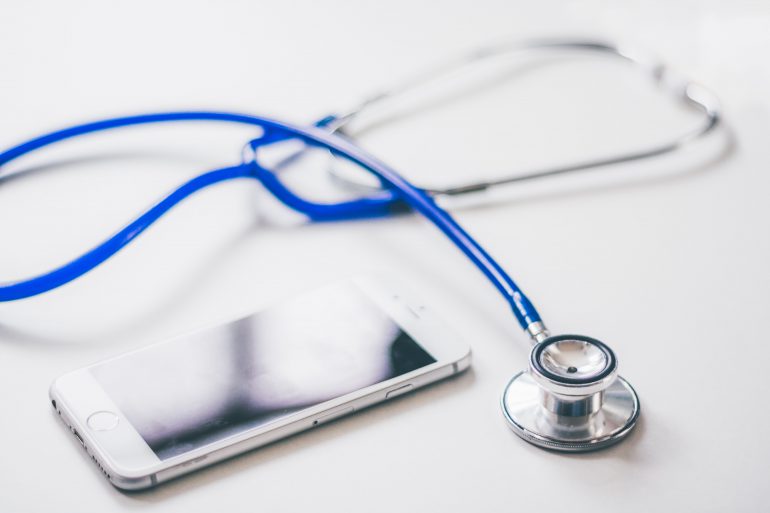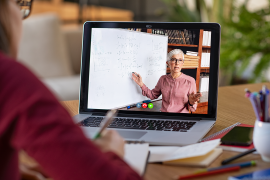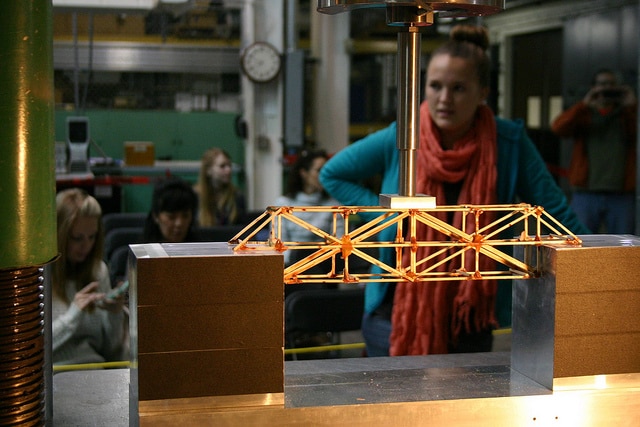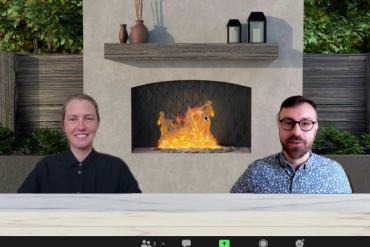The first year of the renewed MD 2020 curriculum was implemented in January of this year. The Year 1 program focuses on developing the foundational knowledge and skills required for the clinical immersive years which begin in Year 2. One of the eight integrated vertical themes in the curriculum is clinical skills – where the associated learning and assessment predominantly takes place with clinical educators at each of the six clinical schools.
One such assessment is the Mini Clinical Evaluation Exercise (mini-CEx). Mini-CExs are well-established and accepted as workplace-based assessments and used widely in clinical settings around the world. They allow senior clinicians to assess the clinical examination and history taking ability of more junior clinicians by having them undertake an authentic clinical task under supervision. In our context, students perform a physical examination, or take a history from a real or simulated patient, and are assessed by a clinician in real-time. The mini-CEx facilitates timely feedback for the learner and when used correctly is an invaluable learning tool. This slow but gradual introduction to clinical practice is important, and that students are assessed demonstrating these clinical skills in a safe, supportive environment.
In Year 1, students must perform three mini-CExs each semester at an established minimum required standard across three key domains – (i) performance of physical examination or history-taking, (ii) communication, and (iii) professionalism, and there must be sufficient coverage of clinical skills attainment across the different body systems. Having numerous mini-CExs available in each teaching block provides students with the opportunity to practice and obtain feedback from a variety of assessors at their home clinical school to further aid their learning, as well as having a final choice in what they’re eventually assessed on. Pre-Covid-19, students accessed mini-CExs on a platform called kuraCloud using their mobile device, which they then handed to their assessor. The completed mini-CEx was digitally signed by the assessor and the student submitted a system-generated PDF to Canvas.
In light of Covid-19, teaching and assessing clinical skills posed a particularly unique challenge. Not only was clinician time generally more scarce and unpredictable, but synchronous face-to-face assessments such as these were simply no longer possible. Our solution was a Media Recording Assignment in Canvas. Students would record themselves undertaking the exercise on a family member or someone from within their household. With students at an early point in their training we felt that learning the steps of the examination on a healthy family member or friend would still be beneficial for their level of training, as well as being safe. Students are instructed to first identify themselves by holding up their Student ID at the beginning of the recording. Once completed, students upload the video to Canvas. When available, a clinician would then assess the video using a rubric based on the above domains. They are also encouraged to provide either written or audio feedback in SpeedGrader. Files do not need to be downloaded as they are streamed in a native media player in SpeedGrader.
This revised workflow was consistent with the educational principles of its pre-Covid-19 equivalent however timely feedback was not always possible for the reasons explained above. Obviously, this transition to an asynchronous assessment also detracted slightly from the authenticity of the assessment, but the MD team thought this was a balanced compromise. Hopefully this simple and elegant solution, with minimal administrative burden for students and assessors, can be translated into other contexts, or inspire new ways of assessing. As educators, along with our students, we continue to learn and adapt to this new ‘normal’ which is seeing us embrace and extend the ways in which we use educational technologies to enrich our students’ experiences in the online environment.
“Anyone who has never made a mistake has never tried anything new.” – Albert Einstein
This article was contributed to by Nidhi Garg, Deborah O’Mara and Kellie Charles





